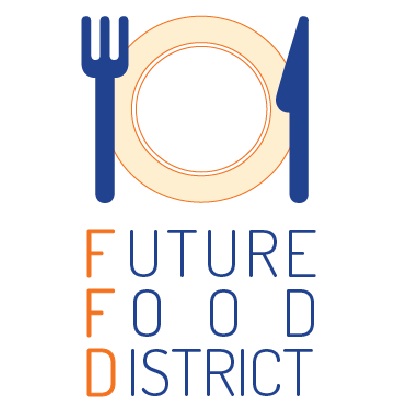 Food is key for the whole humanity. Worldwide policies and organizations should aim at a better and more equal redistribution of food all around the world; we can only foster “local” solutions to educate people, improve the quality of what they eat, and give them better means to address the food problem in our society. Future food districts cannot be global, pervasive entities, but they must work with the environment and obtain the best out of it. The problem is multi-faceted and can be tackled from different angles: for example, new supply chains, new supermarkets, new cuisines, more sustainable packaging and distribution, healthier recipes and new cooking machines. It is not only a matter of using smart tags or mobile technologies to let the customer leave a better, social experience while buying goods at supermarkets. Food distribution, purchasing, and processing must be thoroughly rethought and repositioned in our lives.
Food is key for the whole humanity. Worldwide policies and organizations should aim at a better and more equal redistribution of food all around the world; we can only foster “local” solutions to educate people, improve the quality of what they eat, and give them better means to address the food problem in our society. Future food districts cannot be global, pervasive entities, but they must work with the environment and obtain the best out of it. The problem is multi-faceted and can be tackled from different angles: for example, new supply chains, new supermarkets, new cuisines, more sustainable packaging and distribution, healthier recipes and new cooking machines. It is not only a matter of using smart tags or mobile technologies to let the customer leave a better, social experience while buying goods at supermarkets. Food distribution, purchasing, and processing must be thoroughly rethought and repositioned in our lives.
As for distribution, we need sustainable solutions and customers must be re-educated to eat what is close to them and when the environment produces it. There is not need for strawberries in January if they need to travel from one continent to another, they must be treated with too many chemicals, and the costs of packaging and transport are prohibitive. It is also a pity that every time we return home after buying food at supermarket, we immediately waste a conceivable amount of money, time, and resources in un-rapping and un-packaging the food. Smarter, cheaper, and more sustainable solutions must be devised to preserve the freshness and integrity of food without exaggerating with too many boxes, wrappers, and containers.
Principal Academic Tutor
Luciano Baresi, Electronics, Information and Bioengineering, Politecnico di Milano
Academic Tutor
Sam Guinea, Electronics, Information and Bioengineering, Politecnico di Milano
Maurizio Morisio, Electronics and Telecommunications, Politecnico di Torino
Giuliano Noci, Management, Economics and Industrial Engineering, Politecnico di Milano
Margherita Pillan, Design, Politecnico di Milano
External institutions
EXPO 2015 – Settore Innovazione tecnologica
MIT – Massachusetts Institute of Technology – SENSEable City Lab
Telecom Italia
External tutor
Guido Arnone, EXPO 2015, Settore Innovazione tecnologica
Carlo Ratti, MIT – SENSEable City Lab
Team A members
Gianluca Bergami, Civil Engineering, Politecnico di Milano
Stanislava Bivolarevic (Team Controller), Management Engineering, Politecnico di Milano
Laura Cavelli (Communication coordinator), Architecture, Politecnico di Milano
Luca Giovagnoli, Computer Engineering, Politecnico di Torino
Ilaria Maltoni, Architecture, Politecnico di Milano
Sara Morettin, Engineering and Management, Politecnico di Torino
Valentina Porceddu, Sustainability Design, Politecnico di Torino
Team B members
Anna Dalla Valle, Architecture, Politecnico di Milano
Deva D’angelo, Environmental Engineering, Politecnico di Torino
Stefano Ricci, Computer Engineering, Politecnico di Torino
Henri Valancogne, Architecture, Politecnico di Milano
Maja Urosevic (Team Controller), Management Engineering, Politecnico di Milano
